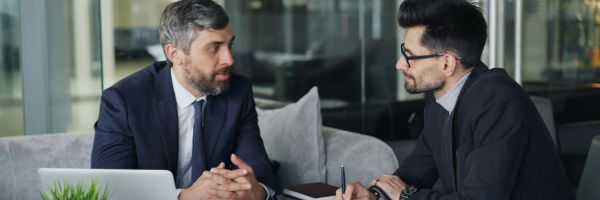Breaking the Silence: Men Experiencing Domestic Violence in New Jersey

Domestic violence (DV) is often framed as an issue primarily affecting women—and to be clear, women do face disproportionate harm—but that framing risks silencing and marginalizing men who survive abuse. In New Jersey, men are among those who suffer, and their experiences deserve attention, better resources, understanding, and support.
What the Data Tells Us
- In New Jersey, about 27.4% of men report experiencing intimate partner physical violence, intimate partner rape, and/or intimate partner stalking during their lifetimes. NCADV
- For comparison, the figure for women is higher: 35.8% of women report similar experiences. NCADV
- The state has made significant strides in making help available: there’s a statewide domestic violence hotline (1-800-572-SAFE), local programs in each county, emergency shelters (where possible), legal aid, etc. NJ State Police
These numbers indicate that domestic violence against men is not rare; men make up a substantial portion of survivors in NJ.
Unique Challenges Faced by Male Survivors

Though the raw numbers are significant, many men who are experiencing domestic violence face additional, often under-recognized obstacles in seeking help or finding support:
- Stigma and Gender Norms
Many men feel shame, embarrassment, or fear of not being “believed,” rooted in social ideas about masculinity—strength, self-sufficiency, emotional control. These ideas can make it harder to admit suffering, confide in others, or reach out for help.
- Lack of Tailored Resources
Most DV shelters, support groups, advocacy programs are designed around women’s experiences, with staffing, outreach, and sometimes even eligibility criteria reflecting that. For many male victims, especially those who are heterosexual, sexual orientation isn’t an issue—but the services may still feel not “for them.” Some shelters do not accept men, or do so only in limited capacity or under strict conditions.
- Under-reporting and Misrecognition
Because of stigma, many men do not report abuse. They might not see their experience as “domestic violence,” especially when it’s emotional abuse, controlling behavior, financial abuse, or psychological abuse rather than physical violence.
- Legal and Law Enforcement Biases
Some male survivors report being dismissed, minimized, or misidentified as aggressors when seeking help from police. Legal protection (like restraining orders) is available, but using it can be complicated. There may be fear that family courts (custody issues, etc.) may see them less sympathetically.
- Mental Health Impacts
Abuse has psychological, emotional, and health costs—depression, anxiety, trauma, self-esteem, sometimes suicidal thoughts. Men may feel isolated, reluctant to access therapy or counseling, whether because of cost, stigma, or lack of male-friendly services.
What is Working in New Jersey: Resources and Support

Despite the challenges, there are resources in NJ that are explicitly supportive of male survivors, or at least are inclusive of them. Some of these include:
- Hotlines
• NJ Statewide Domestic Violence Hotline: 1-800-572-SAFE (7233)
• NJCASA (Sexual Violence Hotline): 1-800-601-7200
- Shelters / Safe Houses
• 180 New Jersey operates a “Safe House” that offers emergency shelter, case management, counseling, housing help for survivors regardless of sexual orientation or gender identity. That means male survivors can access this safe house. 180nj
- Advocacy and Legal Aid
• County‐based domestic violence programs, many of which are required to operate regardless of the survivor’s gender. NJ.gov
• SERV (Services Empowering Rights of Victims) providing legal advocacy, counseling, safe housing, etc., in certain counties. Center for Family Services
- Statewide Organizations
• NJ Coalition to End Domestic Violence (NJCEDV) works on policy, awareness, training, and works to ensure services are inclusive. NJ Coalition to End Domestic Violence
• Local organizations (e.g. Manavi, which offers culturally specific services) also may serve men depending on their situation. Manavi
What Still Needs Improvement

To better serve men experiencing domestic violence in New Jersey, several areas need attention:
- Increase awareness specifically that men are victims too—not as an afterthought, but as a normal part of the conversation. This could reduce shame, misrecognition, and underreporting.
- Expand shelters/safe housing capacity that can accommodate men safely, privately, and respectfully.
- Train law enforcement, courts, medical providers, and social services in gender-inclusive DV response. Recognizing signs in men, avoiding stereotyping, ensuring victims are believed and evidence is handled sensitively.
- More mental health services tailored to male survivors, including affordable, culturally competent counseling, peer support groups, etc.
- Better data collection and research specific to male experiences: what types of abuse they experience most, what barriers they encounter locally, outcomes, etc.
What You Can Do (If You Are a Survivor, Ally, or Advocate)

- If you are a man experiencing DV, know that help does exist. Hotlines are available; shelters may accept you; advocacy groups may help with legal protection. You deserve safety, support, and respect.
- Document what is happening: dates, times, what was said or done; photos if there are physical injuries; keep copies of texts, voicemails, etc. This helps if you seek a restraining order or legal advocacy later.
- Reach out to someone you trust: friend, family member, counselor. Isolation makes it worse.
- Advocate for change: talk in your community, push for male‐inclusive training and services, support organizations doing this work.
- Use existing state resources: the NJ State Police domestic violence info, local county domestic violence programs, NJCEDV, etc.
Contact A Lawrence Law Domestic Violence Attorney Today

Domestic violence does not discriminate by gender. In New Jersey, men are significantly impacted by intimate partner violence, stalking, and other forms of abuse. Yet societal norms, lack of tailored services, and stigma all combine to make masculinity a barrier to acknowledging harm and seeking help.
Understanding and supporting male survivors is essential. Bringing awareness, changing policies, strengthening services, and ensuring that no one feels alone or invisible are steps we must take. Everyone deserves safety, respect, and the ability to heal.
Beyond emergency hotlines and shelters, legal protection is critical. A knowledgeable family law attorney can help you file for restraining orders, navigate custody issues, and protect your rights in divorce or separation proceedings. For male survivors who worry they will not be taken seriously in court, having an experienced advocate can make a meaningful difference. Contact us today at (908) 645-1000 or through our contact form.





